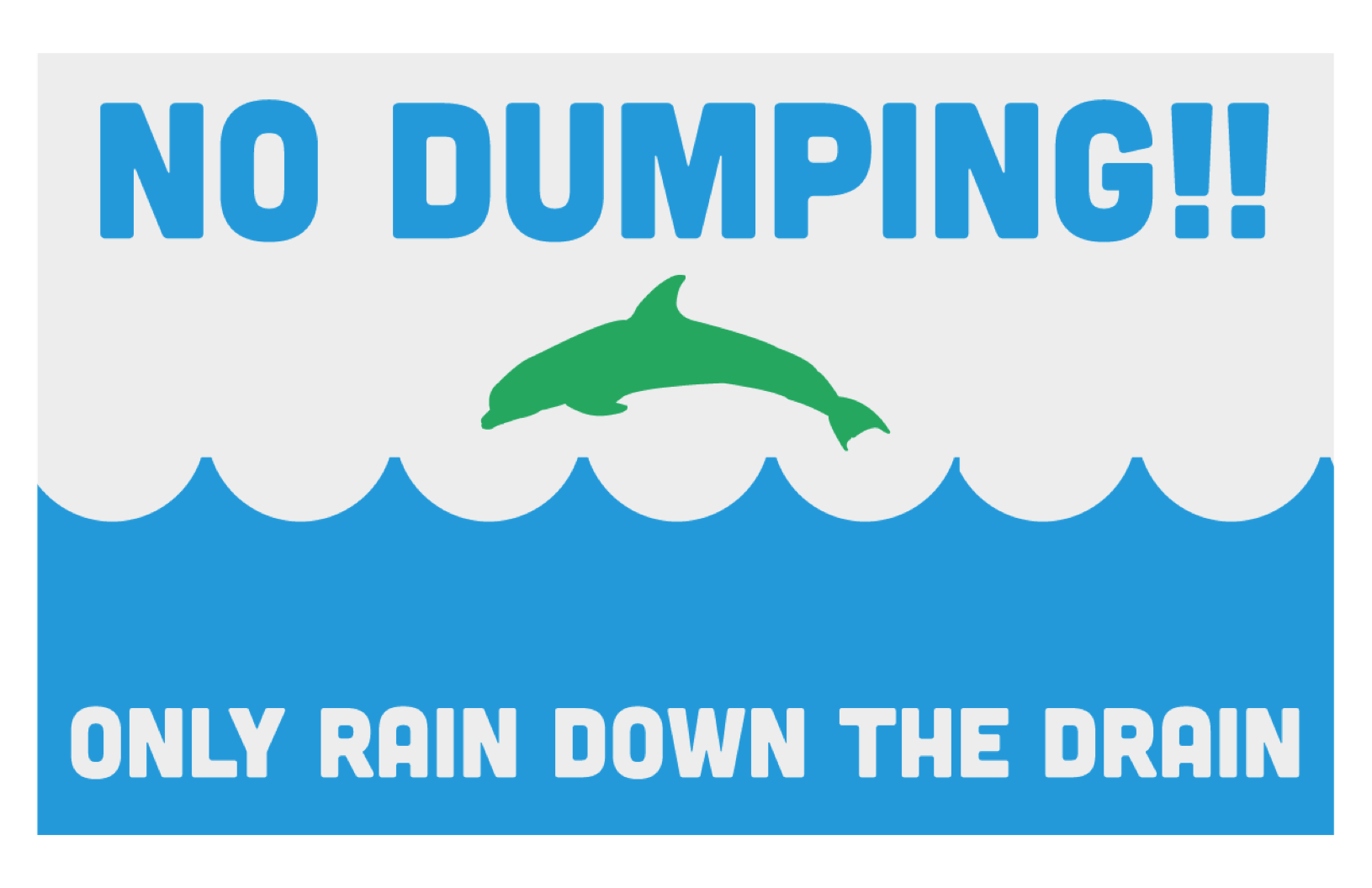 Only Rain Down The Storm Drain!
Only Rain Down The Storm Drain!
Did you Know?
- Storm drains do not drain water to the sanitary sewer and storm water is not treated at waste water treatment plants.
- Storm drains are present in developed areas to prevent flooding by transporting water away from development.
- Storm water is transported by storm drain systems and eventually flows into streams, lakes, rivers, and the ocean.
- Storm water can pick up many pollutants along its journey such as trash, sediment and nutrients. All of these can harm wildlife, their habitat and our drinking water supplies
Common urban pollutants to storm water
- Soil and landscape debris
- Pet waste
- Soaps and detergents from car washing or cleaning of outdoor surfaces
- Illegal dumping or improper disposal
- fertilizers and pesticides
- litter and trash
- leaking vehicles
What can you do to reduce or prevent storm water pollution?
- Sweep or rake up debris on surfaces
- Place waste in containers for proper disposal
- Use less toxic weed and pest control methods
- Avoid over watering
- Don’t dump chemicals or oil down the storm drain
- Properly maintain your pool and spa
- Don’t drain unless absolutely necessary
- Check local regulations when draining
- Use a full or self-service car wash that recycles water
- When washing cars at home use as little water as possible, use biodegradable cleaning products, and drain water into vegetated or graveled surfaces
- Pick up animal waste
To report improper discharges
Email: fsworkcenter@csuci.edu
Phone: 805-437-8461
Storm Water Pollution Prevention (PDF, 678KB)
